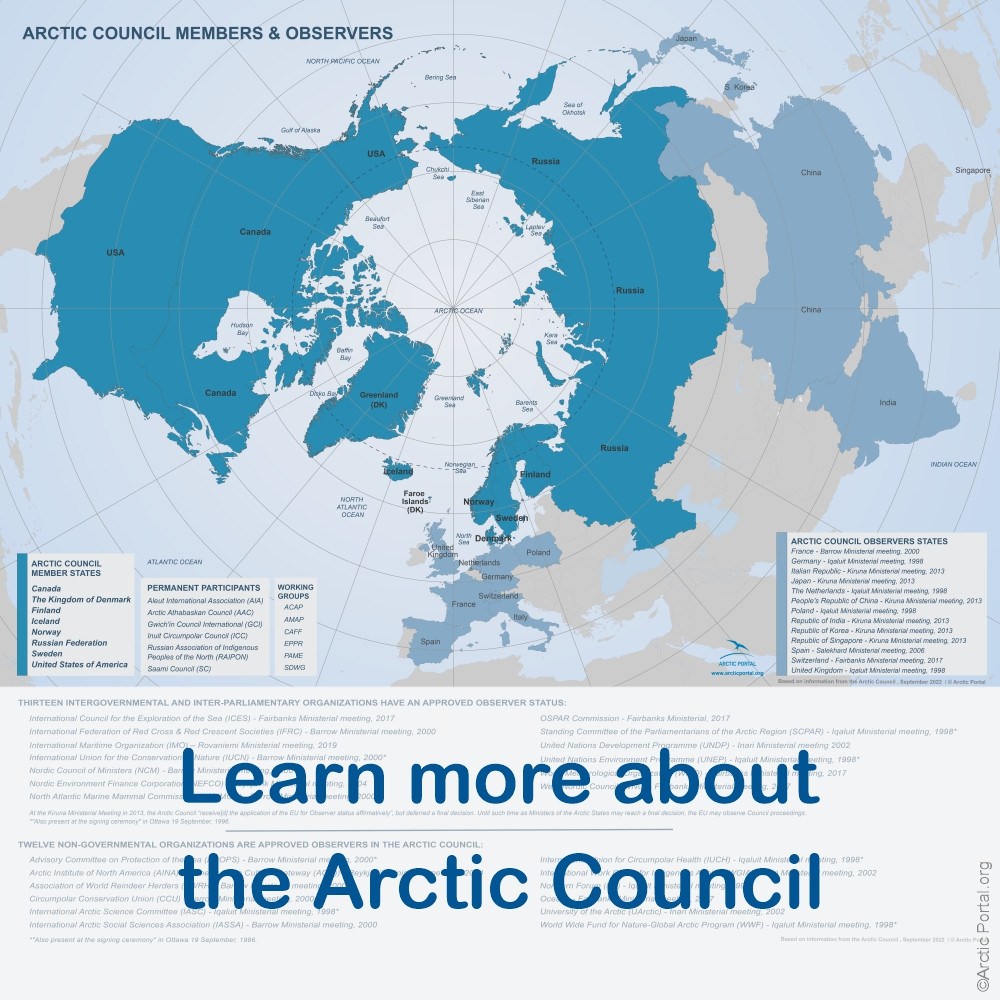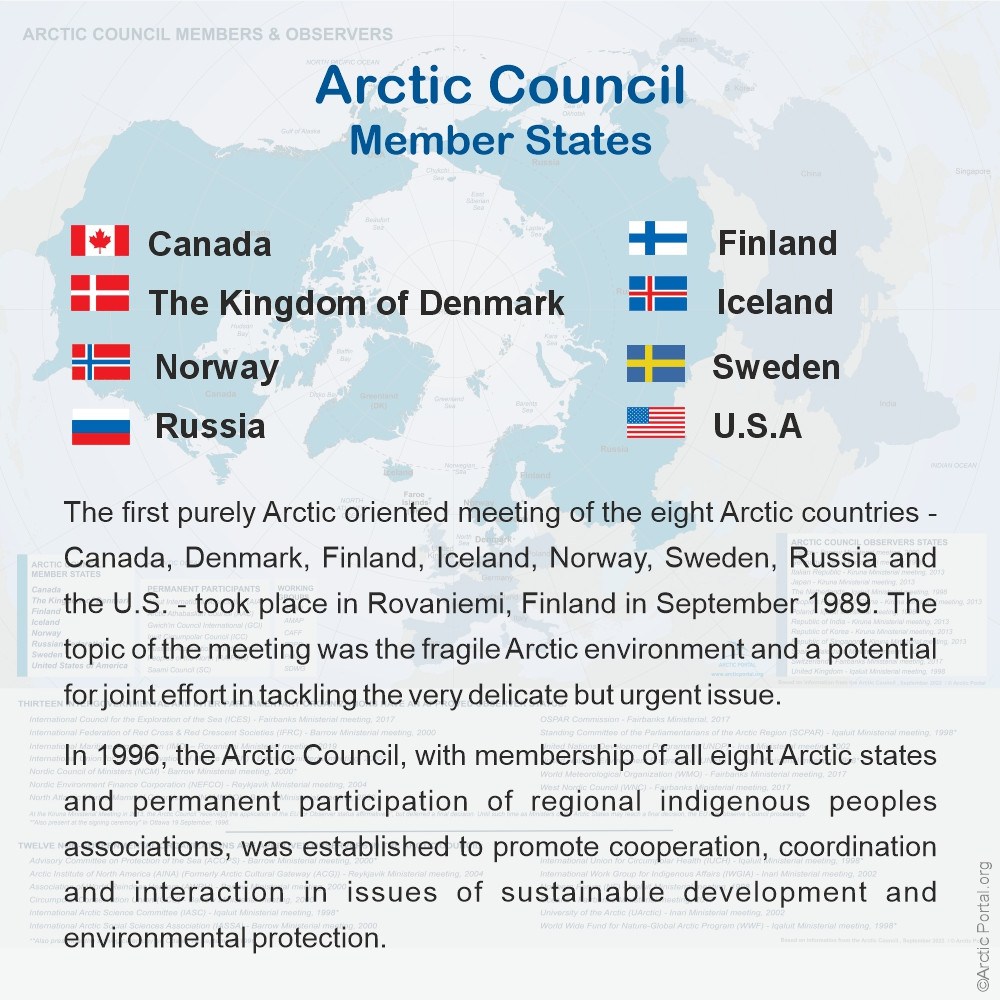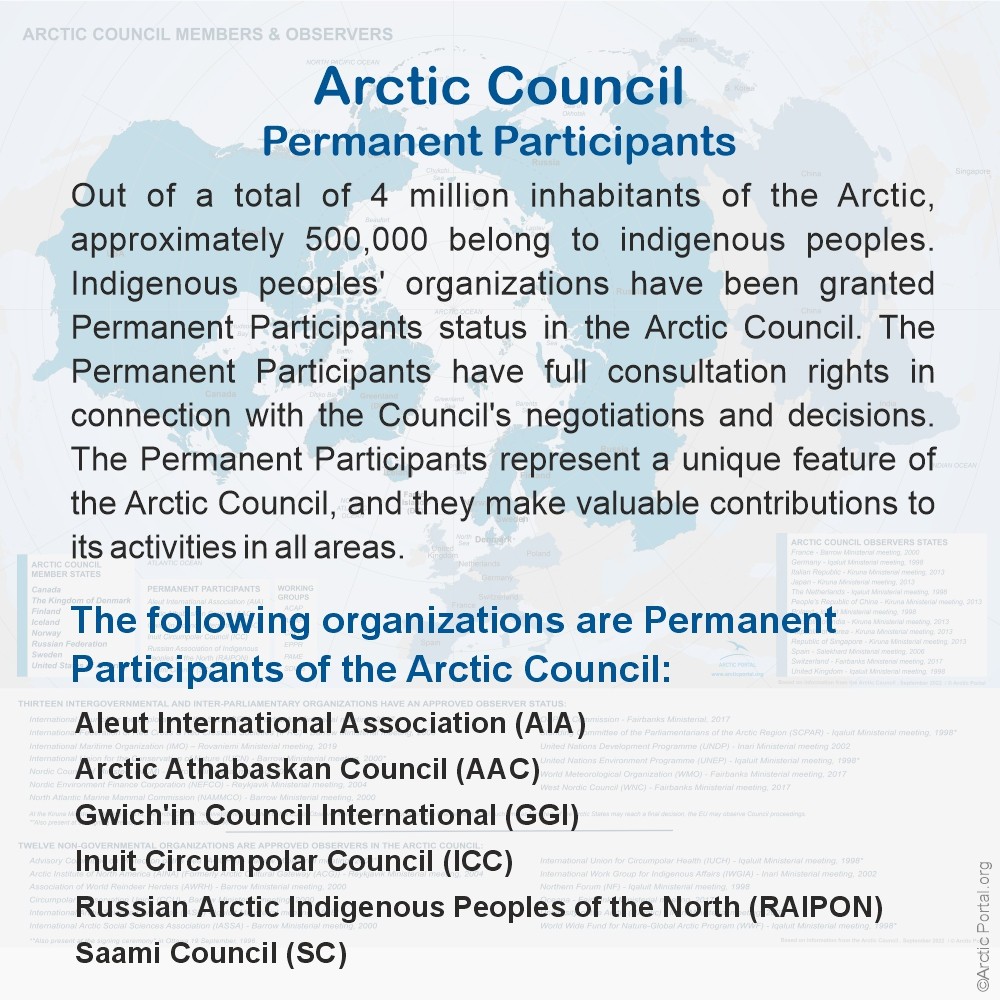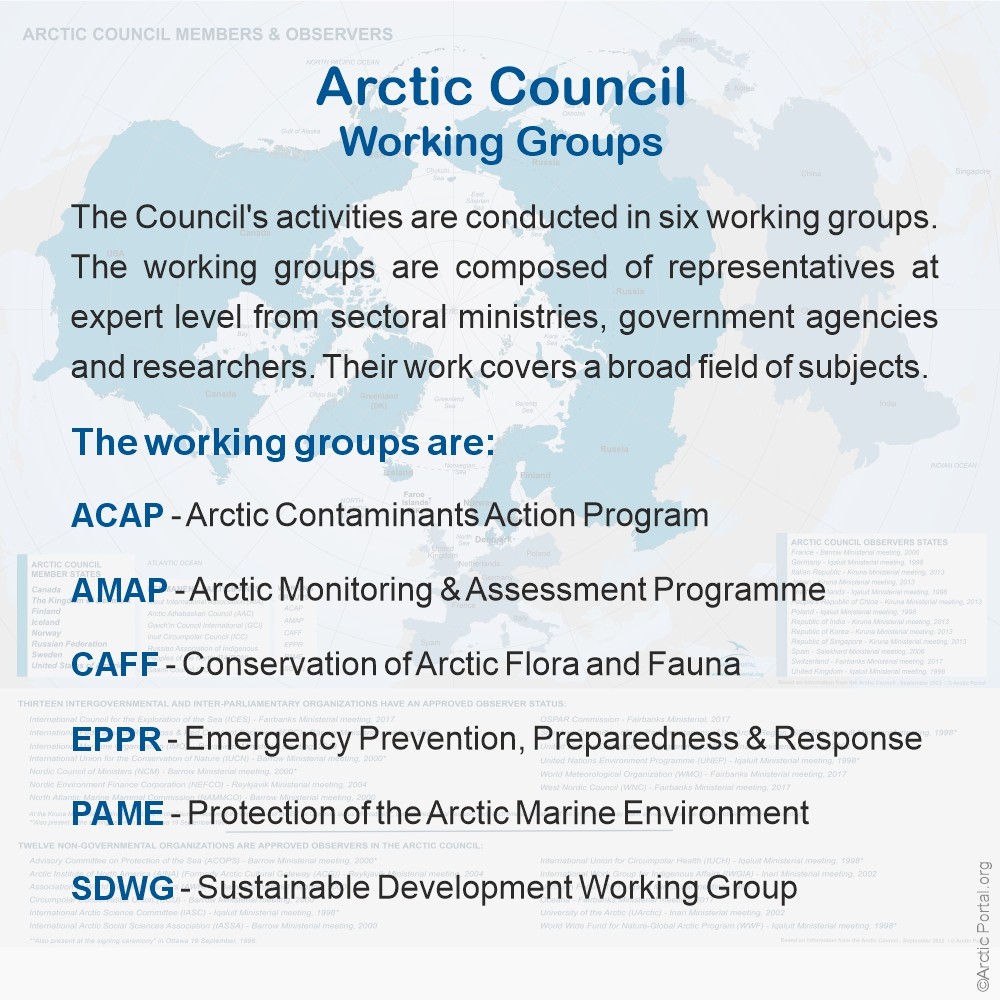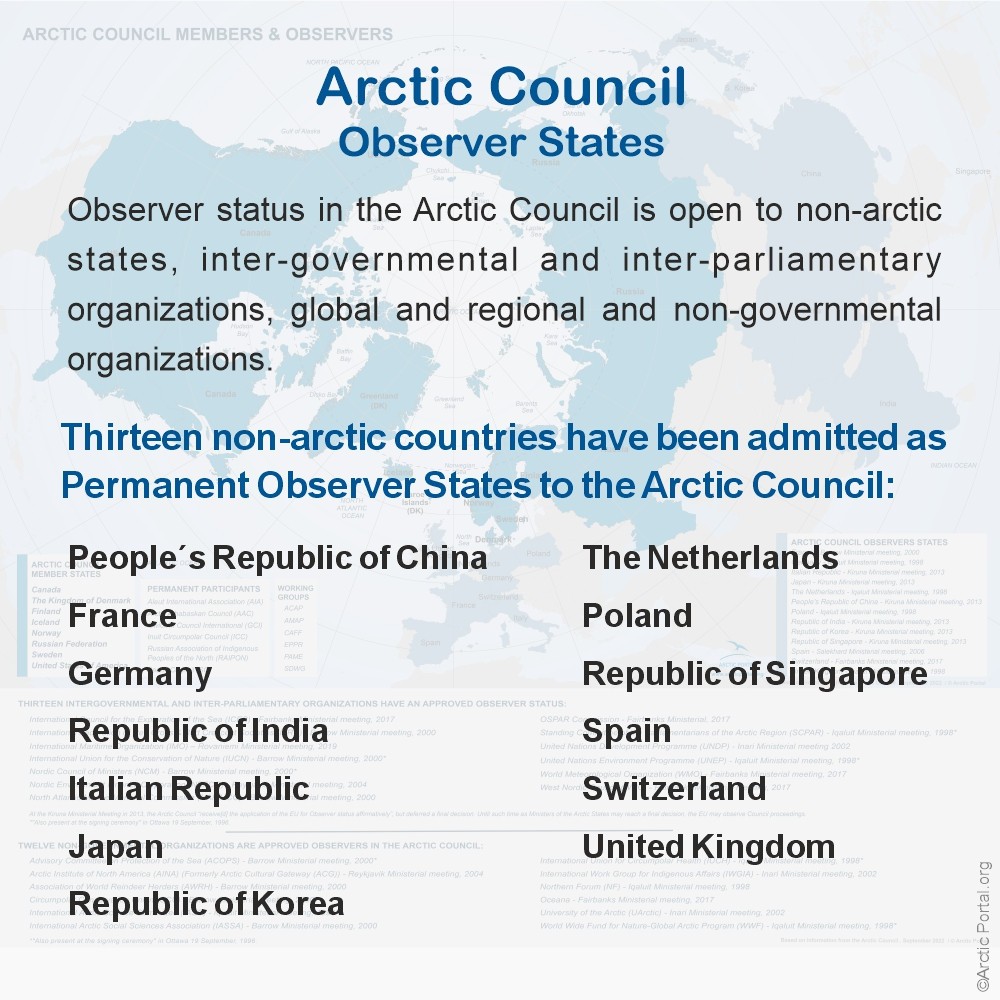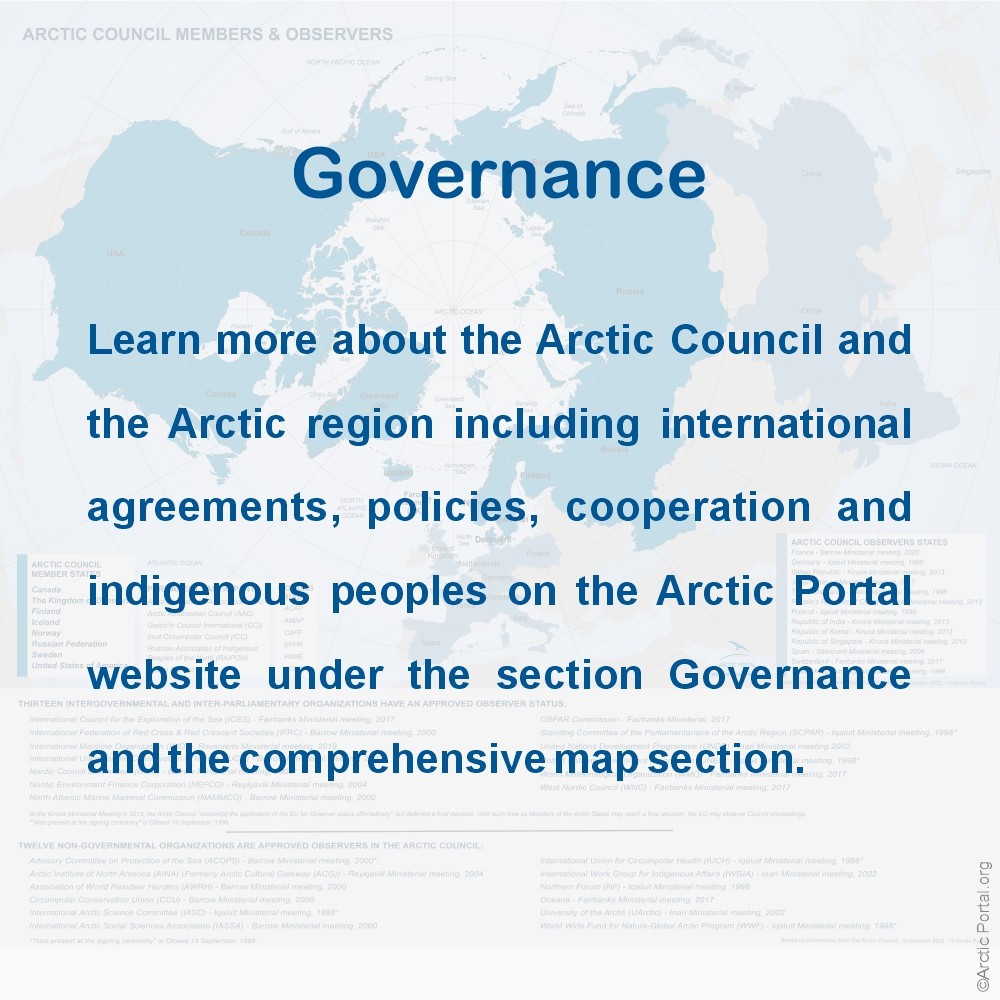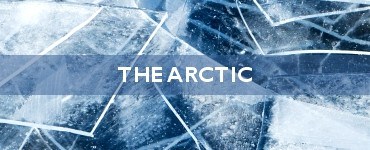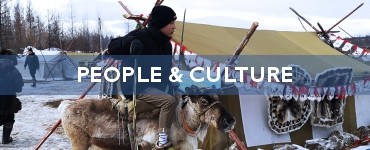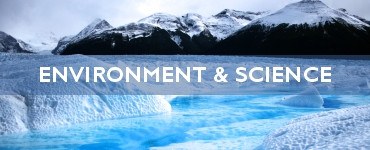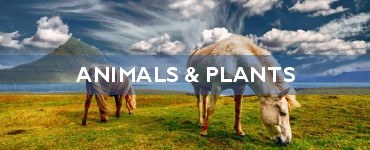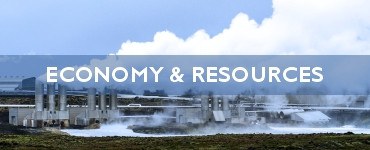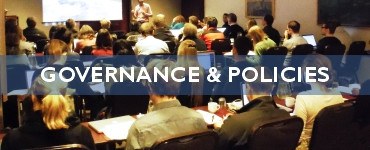The first purely Arctic oriented meeting of the eight Arctic countries - Canada, Denmark, Finland, Iceland, Norway, Sweden, Russia and the U.S. - took place in Rovaniemi, Finland in September 1989. The topic of the meeting was the fragile Arctic environment and a potential for joint effort in tackling the very delicate but urgent issue.
In 1996, the Arctic Council, with membership of all eight Arctic states and permanent participation of regional indigenous peoples associations, was established to promote cooperation, coordination and interaction in issues of sustainable development and environmental protection.
Permanent Participants
Out of total of 4 million inhabitants of the Arctic, approximately 500,000 belong to indigenous peoples. Indigenous peoples' organizations have been granted Permanent Participants status in the Arctic Council. The Permanent Participants have full consultation rights in connection with the Council's negotiations and decisions. The Permanent Participants represent a unique feature of the Arctic Council, and they make valuable contributions to its activities in all areas.
The following organizations are Permanent Participants of the Arctic Council:
- Aleut International Association (AIA)
- Arctic Athabaskan Council (AAC)
- Gwich'in Council International (GGI)
- Inuit Circumpolar Council (ICC)
- Russian Arctic Indigenous Peoples of the North (RAIPON)
- Saami Council (SC)
Working Groups
The Council's activities are conducted in six working groups. The working groups are composed of representatives at expert level from sectoral ministries, government agencies and researchers. Their work covers a broad field of subjects.
The working groups are:
- ACAP - Arctic Contaminants Action Program
- AMAP - Arctic Monitoring & Assessment Programme
- CAFF - Conservation of Arctic Flora and Fauna
- EPPR - Emergency Prevention, Preparedness & Response
- PAME - Protection of the Arctic Marine Environment
- SDWG - Sustainable Development Working Group
Observer States
Observer status in the Arctic Council is open to non-arctic states, inter-governmental and inter-parliamentary organizations, global and regional and non-governmental organizations.
Thirteen non-arctic countries have been admitted as Permanent Observer States to the Arctic Council:
- People's Republic of China
- France
- Germany
- Republic of India
- Italian Republic
- Japan
- Republic of Korea
- The Netherlands
- Poland
- Republic of Singapore
- Spain
- Switzerland
- United Kingdom
More information on the Arctic Council
See also our map of Arctic Council members, observer states and observers
Visit our Map Gallery Arctic Portal specializes in creating customized graphical maps that cover a range of significant Arctic topics with global recognition. We are continuously working on new maps and adding them to our Gallery.

